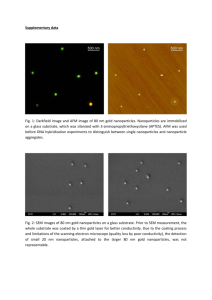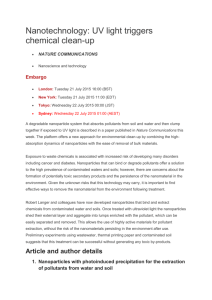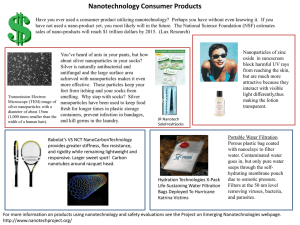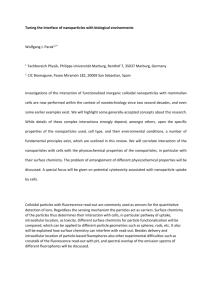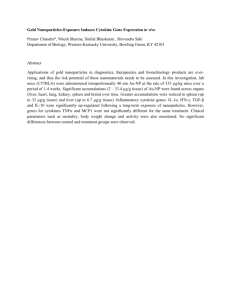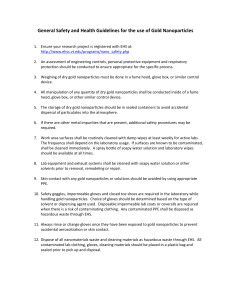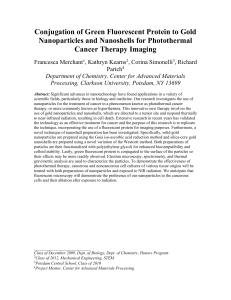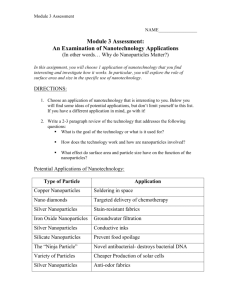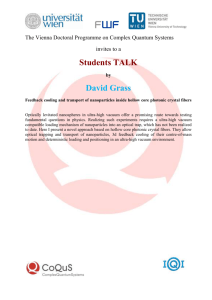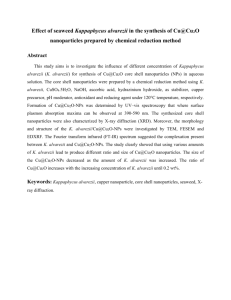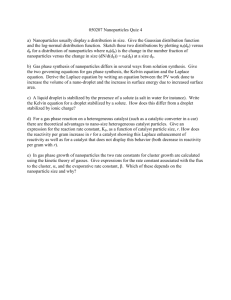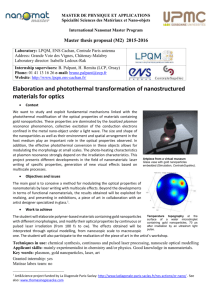Development of analytical methodologies for monitoring engineered
advertisement
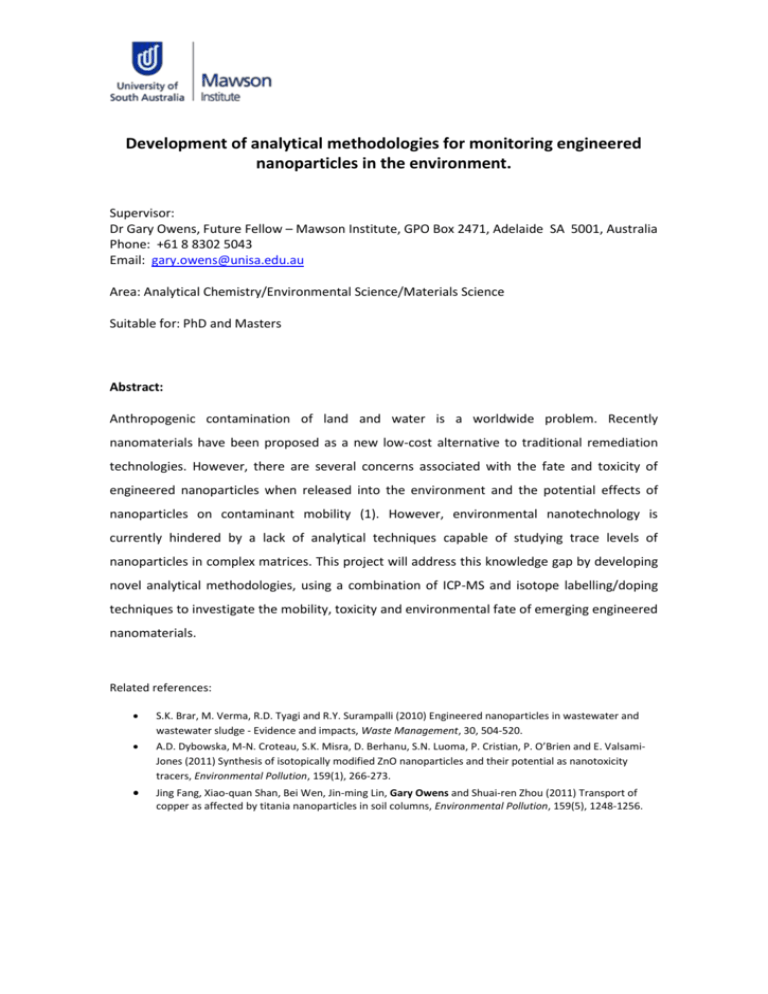
Development of analytical methodologies for monitoring engineered nanoparticles in the environment. Supervisor: Dr Gary Owens, Future Fellow – Mawson Institute, GPO Box 2471, Adelaide SA 5001, Australia Phone: +61 8 8302 5043 Email: gary.owens@unisa.edu.au Area: Analytical Chemistry/Environmental Science/Materials Science Suitable for: PhD and Masters Abstract: Anthropogenic contamination of land and water is a worldwide problem. Recently nanomaterials have been proposed as a new low-cost alternative to traditional remediation technologies. However, there are several concerns associated with the fate and toxicity of engineered nanoparticles when released into the environment and the potential effects of nanoparticles on contaminant mobility (1). However, environmental nanotechnology is currently hindered by a lack of analytical techniques capable of studying trace levels of nanoparticles in complex matrices. This project will address this knowledge gap by developing novel analytical methodologies, using a combination of ICP-MS and isotope labelling/doping techniques to investigate the mobility, toxicity and environmental fate of emerging engineered nanomaterials. Related references: S.K. Brar, M. Verma, R.D. Tyagi and R.Y. Surampalli (2010) Engineered nanoparticles in wastewater and wastewater sludge - Evidence and impacts, Waste Management, 30, 504-520. A.D. Dybowska, M-N. Croteau, S.K. Misra, D. Berhanu, S.N. Luoma, P. Cristian, P. O’Brien and E. ValsamiJones (2011) Synthesis of isotopically modified ZnO nanoparticles and their potential as nanotoxicity tracers, Environmental Pollution, 159(1), 266-273. Jing Fang, Xiao-quan Shan, Bei Wen, Jin-ming Lin, Gary Owens and Shuai-ren Zhou (2011) Transport of copper as affected by titania nanoparticles in soil columns, Environmental Pollution, 159(5), 1248-1256. About Adelaide: Adelaide is the capital of South Australia and offers a very high standard of living (top 6 in the world according to “The Economist”), with great climate, food, wine, beautiful unspoiled nature and beach environments, in an inexpensive setting. The Mawson Institute (MI) has recently been established at the University of South Australia, with strong support from the South Australian Government to research new manufacturing technologies. Manufacturing is an important and substantial part of South Australia’s economic base. The MI promotes a strategy based upon strong basic and applied research that encourages scientific and technological innovation within the manufacturing sector. Fundamental to this is the Institute’s multidisciplinary approach, building research teams in concentrations that encompass a diverse range of disciplines, and collaboration with partners from both academia and industry. The institute is based in two new state-of-the-art buildings with outstanding research facilities (see photo of the MM building). For more information on this project please contact the supervisor.
